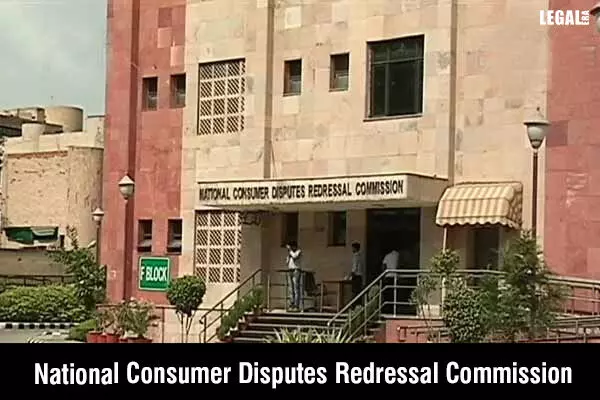- Home
- News
- Articles+
- Aerospace
- Artificial Intelligence
- Agriculture
- Alternate Dispute Resolution
- Arbitration & Mediation
- Banking and Finance
- Bankruptcy
- Book Review
- Bribery & Corruption
- Commercial Litigation
- Competition Law
- Conference Reports
- Consumer Products
- Contract
- Corporate Governance
- Corporate Law
- Covid-19
- Cryptocurrency
- Cybersecurity
- Data Protection
- Defence
- Digital Economy
- E-commerce
- Employment Law
- Energy and Natural Resources
- Entertainment and Sports Law
- Environmental Law
- Environmental, Social, and Governance
- Foreign Direct Investment
- Food and Beverage
- Gaming
- Health Care
- IBC Diaries
- In Focus
- Inclusion & Diversity
- Insurance Law
- Intellectual Property
- International Law
- IP & Tech Era
- Know the Law
- Labour Laws
- Law & Policy and Regulation
- Litigation
- Litigation Funding
- Manufacturing
- Mergers & Acquisitions
- NFTs
- Privacy
- Private Equity
- Project Finance
- Real Estate
- Risk and Compliance
- Student Corner
- Take On Board
- Tax
- Technology Media and Telecom
- Tributes
- Viewpoint
- Zoom In
- Law Firms
- In-House
- Rankings
- E-Magazine
- Legal Era TV
- Events
- Middle East
- Africa
- News
- Articles
- Aerospace
- Artificial Intelligence
- Agriculture
- Alternate Dispute Resolution
- Arbitration & Mediation
- Banking and Finance
- Bankruptcy
- Book Review
- Bribery & Corruption
- Commercial Litigation
- Competition Law
- Conference Reports
- Consumer Products
- Contract
- Corporate Governance
- Corporate Law
- Covid-19
- Cryptocurrency
- Cybersecurity
- Data Protection
- Defence
- Digital Economy
- E-commerce
- Employment Law
- Energy and Natural Resources
- Entertainment and Sports Law
- Environmental Law
- Environmental, Social, and Governance
- Foreign Direct Investment
- Food and Beverage
- Gaming
- Health Care
- IBC Diaries
- In Focus
- Inclusion & Diversity
- Insurance Law
- Intellectual Property
- International Law
- IP & Tech Era
- Know the Law
- Labour Laws
- Law & Policy and Regulation
- Litigation
- Litigation Funding
- Manufacturing
- Mergers & Acquisitions
- NFTs
- Privacy
- Private Equity
- Project Finance
- Real Estate
- Risk and Compliance
- Student Corner
- Take On Board
- Tax
- Technology Media and Telecom
- Tributes
- Viewpoint
- Zoom In
- Law Firms
- In-House
- Rankings
- E-Magazine
- Legal Era TV
- Events
- Middle East
- Africa
NCDRC Rules in Favour of Homebuyer in Case Against BPTP Builders Over Flat Allotment Cancellation

NCDRC Rules in Favour of Homebuyer in Case Against BPTP Builders Over Flat Allotment Cancellation
The National Consumer Disputes Redressal Commission (NCDRC), headed by member Subhash Chandra, overturned a decision by the Haryana State Commission and ruled in favour of a complainant against BPTP Builders. The Commission found the builder liable for "deficiency in service" related to the cancellation of the complainant's booked flat.
A dispute arose between a homebuyer and BPTP Builders over a flat purchase. The buyer initially paid ₹5,50,000 but never received a proper receipt, allotment letter, or agreement. Despite this, the builder allotted a flat, which the buyer requested to change due to her husband's disability. After communication regarding further payments broke down, the builder cancelled the allotment and forfeited the initial payment.
The buyer challenged this decision in the Haryana District Forum, which ruled in her favour. The forum ordered the builder to refund the initial payment with interest, along with compensation and litigation costs. However, the State Commission of Haryana revised the order, only requiring the builder to return the principal amount without interest.
The NCDRC overturned the Haryana State Commission’s decision based on several key factors:
• Builder's Deficiencies: Firstly, the builder's failure to provide a proper allotment letter and valid payment receipts constituted both a deficiency in service and unfair trade practices. This lack of transparency and documentation was deemed detrimental to the buyer's interests.
• Selective Enforcement: Secondly, the NCDRC criticised the builder's selective enforcement of contractual clauses. While holding the buyer accountable for payment delays through a default clause, the builder conveniently sidestepped their own responsibility for providing essential documentation. This uneven application of rules was deemed unfair and prejudicial to the buyer.
• State Commission's Error: Most crucially, the NCDRC identified a critical error in the State Commission's decision. The State Commission, without proper justification, partially faulted both parties, leaving the reasoning behind this decision opaque and potentially leading to a miscarriage of justice. This lack of clarity and potential unfairness warranted intervention from the higher authority.
In a significant reversal, the Commission overruled the State Commission's order. It directed the builder to fully reimburse the petitioner the initially deposited ₹8,50,000 along with annual interest of 9 per cent compounded from the individual deposit dates until the complete amount is paid. This repayment needs to occur within 8 weeks from the order's issuance. Additionally, the builder was required to cover the petitioner's litigation costs of ₹10,000.



